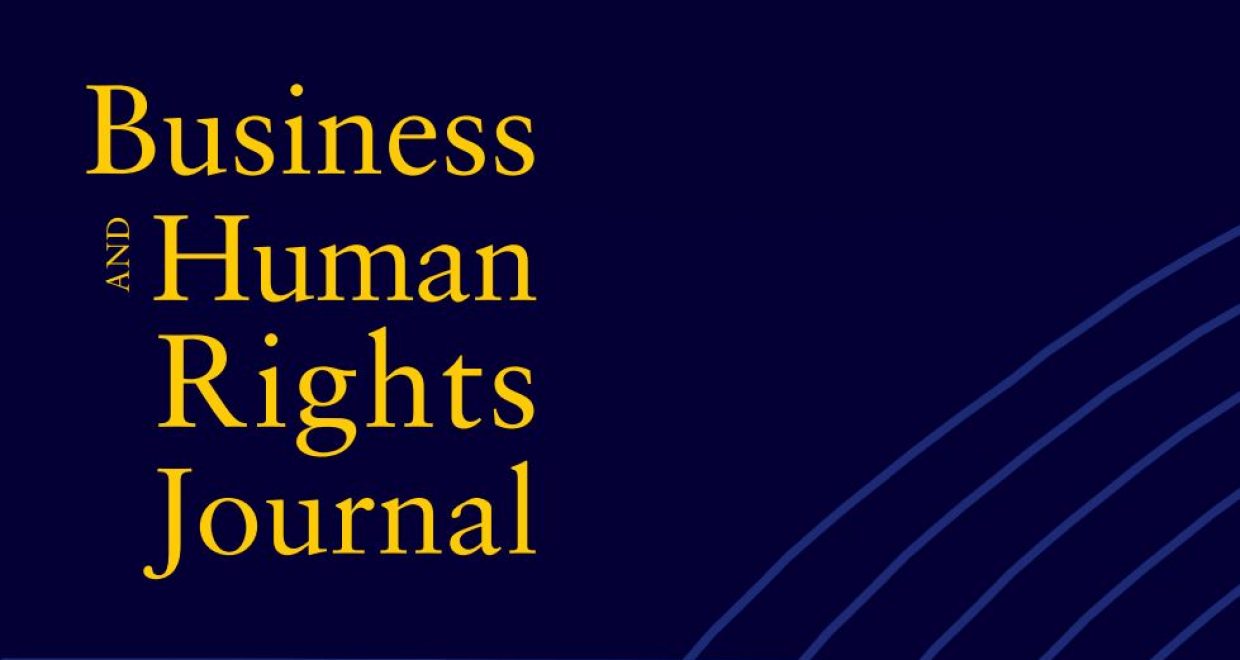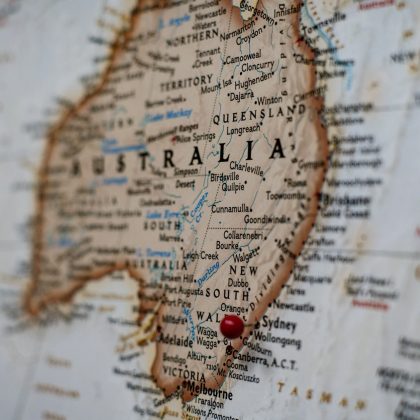Looking back to move forward: two decades of advancing company guidance on how to operate in complex environments
The increased importance of human rights due diligence (HRDD) in conflict affected areas or contexts that otherwise have a complex security situation was recently highlighted in the UN Working Group’s report Business, human rights and conflict-affected regions: towards heightened action UNWG 2020. It concludes that such contexts require a conflict-sensitive lens and the implementation of heightened due diligence. It also proposes to share, pool and build on existing practices to ensure that businesses are appropriately guided in these contexts.
The Geneva Center for Business and Human Rights (GCBHR) has partnered with the Geneva Centre for Security Sector Governance (DCAF) and the International Committee of the Red Cross (ICRC) to renew the existing “Addressing Security and Human Rights” Toolkit and Knowledge Hub. This is one of the few existing resources mentioned in the UN Working Group’s report that does focus on these types of contexts. These resources for companies aim to do three things: 1) provide one central platform for all material related to business, security and human rights; 2) outline the most significant challenges for companies when it comes to human rights compliant security practices, and 3) provide good practices and examples that companies can use to address these.
The revision of the toolkit led by the GCBHR is based on over 20 interviews with company representatives, civil society representatives and other experts, some of which have already been using the toolkit in their work and some who have not yet used it. Our research and engagement with key stakeholders of these tools provided us with good insights into companies’ challenges of aligning security arrangements with human rights standards. For one, companies are struggling to apply HRDD within their security arrangement, particularly in complex environments. Aligned with the findings of the UN Working Group, we conclude that readily applicable guidance and sharing of good practices adapted to the specificity of complex security environments is still needed.
This year we celebrate the 10th anniversary of the United Nations Guiding Principles on Business and Human Rights (UNGPs), yet last year already marked the 20th anniversary of the Voluntary Principles on Security and Human Rights (VPs). The VPs are a multi-stakeholder initiative and a standard that guides companies on how to conduct their security operations while respecting human rights. Despite the fact that the VPs were developed a decade before the UNGPs, they fit neatly under the UNGPs umbrella as a sector-specific (the extractive sector, though nothing precludes the principles from being used within other sectors) and issue-specific (security arrangements) standard for human rights principles guiding companies to responsible business conduct.
Companies in the extractive industry frequently operate in complex environments. Those areas are experiencing or recovering from unrest or instability, whether due to natural disasters or armed conflicts. The rule of law is oftentimes weak and the capacity of the state authority to handle the situation is limited or non-existent. Precious metals and minerals, as well as oil- and gas reserves, are often located in such complex environments. These valuable resources can also be the source of conflict which further increases the complexity of their extraction context.
Given the nature of the industry which typically requires heavy investments into permanent structures and machinery for extraction, companies are not in a position to flexibly pull their operations out of a certain area in case of the escalation of a security situation. Thus, the focus of the VPs on security practices addresses a key human rights challenge for companies in the extractive industry. Sensible security management that prevents and mitigates human rights impacts as part of a company’s HRDD is even more critical when these companies operate in complex environments.
The GCBHR added a layer of urgency to this proportionate approach to HRDD by proposing “Urgent Action Human Rights Due Diligence” for companies finding themselves in contexts that develop extremely rapidly, like for example most recently the Covid-19 pandemic in India or the military coup in Myanmar. By suggesting urgent action HRDD, companies are asked to re-assess human rights risks by pulling together stakeholders vertically from within the company and across their entire supply chain but also horizontally across the industry. This urgent action HRDD approach allows companies to rapidly pool knowledge, expertise and resources to react to situations in which external shocks fundamentally change business parameters as well as risks for workers and communities.
Bearing this in mind, a closer look at the implementation practices of the extractive industry in complex areas is required. The sector has benefitted from 20 years of VPs, meaning an industry specific standard with accompanying multi-stakeholder platform that has generated discussions and implementation tools to inform company practices. Then, 10 years of a parallel and reinforcing existence of the UNGPs has further provided an influx of information, guidance and resources. With this head-start, are there measurable improvements in how companies deal with human rights in complex environments? Has this historical background yielded advantages for companies thinking through their security practices?
Our recent work in partnership with ICRC and DCAF shows that new security risks and complex social-economic developments continue to pose a string of challenges for the sector. Readily applicable tools for companies to conduct HRDD and establish human rights compliant security arrangements in operational contexts subject to conflict, social unrest, or other types of high security risks are still very much needed. The fact that challenges evolve depending on the operational context and the sheer number of guidance tools available, make navigating stakeholder expectations and implementing meaningful and timely HRDD more complicated.
To give some examples:
- Companies have indicated that rising social unrest amplified by the Covid-19 pandemic, has rendered previously benign operating sites increasingly “complex”, with staff being unprepared to deal with security incidents as which they were not anticipating. The absence of specialized security staff on such operational sites makes appropriate responses difficult.
- Further impacts of Covid-19 on security responses that came completely unforeseen and therefore unaddressed by guidance tools, such as concerns around the health of security personnel or the impossibility of stationing them in certain locations; the absence of direct community engagement; the diminished possibilities of any on-the-ground monitoring of security practices.
- Artisanal mining is increasingly understood by companies as a crucial source of livelihood for communities and a potential source of supplies, rather than merely an illegal activity requiring a completely different security approach. The potential role of companies in formalization and certification processes needs to be clarified and supported by corporate practices and law.
- A practical definition of responsibilities of companies in situations of armed conflict is still missing. It has been stated that companies as well as their personnel are bound by international humanitarian law but what that would look like must be clarified, especially for when it relates to security arrangements, which due to their nature may quickly have an impact on the conflict dynamics.
To conclude, 20 years after the adoption of the VPs, there is ample room for further discussion of good practices, lessons learned, and the sharing of examples. Existing guidance tools that can support companies are numerous. These guidance tools are often extensive, specialized and high-level, and sufficient in number to fill a small library. The Toolkit of GCBHR, DCAF and ICRC aims to provide a one-stop-shop for practical examples, sharing of good practices, and referral to wider resources. Its new version will be launched in September 2021.
Prof. Dorothée Baumann-Pauly teaches at Geneva University’s School of Economics and Management where she also directs the Geneva Center for Business and Human Rights. Since 2013, she has also served as the Research Director at the NYU Stern Center for Business and Human Rights at New York University.
Nelleke van Amstel is an associate researcher at the Geneva Center for Business and Human Rights.






